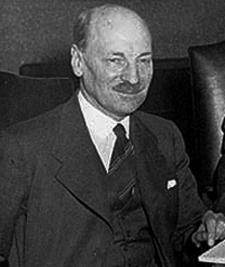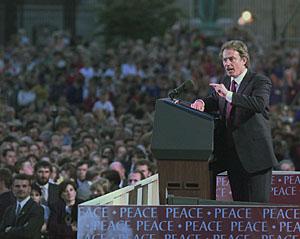|
History Of The United Kingdom (1945–present)
{{Set index article ...
For general overviews of UK politics since 1945 see: * Postwar Britain (1945–1979) * Political history of the United Kingdom (1979–present) Whilst coverage of British social history over the same period can be found below * Social history of Postwar Britain (1945–1979) * Social history of the United Kingdom (1979–present) See also * Post-war consensus * Premiership of Margaret Thatcher * Premiership of Tony Blair * Premiership of Gordon Brown * Premiership of David Cameron * Premiership of Theresa May * Premiership of Boris Johnson *Premiership of Liz Truss * Premiership of Rishi Sunak * Thatcherism Thatcherism is a form of British conservative ideology named after Conservative Party leader Margaret Thatcher that relates to not just her political platform and particular policies but also her personal character and general style of manag ... [...More Info...] [...Related Items...] OR: [Wikipedia] [Google] [Baidu] |
Postwar Britain (1945–1979)
When Britain emerged victorious from the Second World War, the Labour Party under Clement Attlee came to power and created a comprehensive welfare state, with the establishment of the National Health Service giving free healthcare to all British citizens, and other reforms to benefits. The Bank of England, railways, heavy industry, and coal mining were all nationalised. The most controversial issue was nationalisation of steel, which was profitable unlike the others. Economic recovery was slow, housing was in short supply, bread was rationed along with many necessities in short supply. It was an "age of austerity". American loans and Marshall Plan grants kept the economy afloat. India, Pakistan, Burma and Ceylon gained independence. Britain was a strong anti-Soviet factor in the Cold War and helped found NATO in 1949. Many historians describe this era as the "post-war consensus" emphasizing how both the Labour and Conservative parties until the 1970s tolerated or encouraged natio ... [...More Info...] [...Related Items...] OR: [Wikipedia] [Google] [Baidu] |
Political History Of The United Kingdom (1979–present)
The modern political history of the United Kingdom (1979–present) began when Margaret Thatcher gained power in 1979 and began 18 years of Conservative government. Victory in the Falklands War (1982) and the government's strong opposition to trade unions helped lead the Conservative Party to another three terms in government. Thatcher initially pursued monetarist policies and went on to privatise many of Britain's nationalised companies such as British Telecom, British Gas Corporation, British Airways and British Steel Corporation. She kept the National Health Service. The controversial Community Charge (commonly called the "Poll Tax"), used to fund local government was unpopular and the Conservatives removed Thatcher as Prime Minister in 1990, although Michael Heseltine, the man who did much to undermine her, did not personally benefit from taking her out. Thatcher's successor, John Major replaced the Poll Tax with the Council Tax and oversaw successful British involvemen ... [...More Info...] [...Related Items...] OR: [Wikipedia] [Google] [Baidu] |
Social History Of Postwar Britain (1945–1979)
The United Kingdom was one of the victors of the World War II, Second World War, but victory was costly in social and economic terms. Thus, the late 1940s was a time of austerity and economic restraint, which gave way to prosperity in the 1950s. The Labour Party (United Kingdom), Labour Party, led by wartime Deputy Prime Minister of the United Kingdom, Deputy Prime Minister Clement Attlee, won the 1945 United Kingdom general election, 1945 postwar general election in an unexpected landslide and formed their first ever majority government. Labour governed until 1951 United Kingdom general election, 1951, and granted Indian Independence Act 1947, independence to India in 1947. Most of the other major overseas colonies became independent in the late 1950s and early 1960s. The UK collaborated closely with the United States during the Cold War after 1947 and in 1949, helped form NATO as a military alliance against the spread of Soviet Communism. After a long debate and initial skeptici ... [...More Info...] [...Related Items...] OR: [Wikipedia] [Google] [Baidu] |
Social History Of The United Kingdom (1979–present)
The social history of the United Kingdom (1979–present) began with Conservative Prime Minister, Margaret Thatcher (1979–1990) entering government and rejecting the post-war consensus in the 1980s. She privatised most state-owned industries and worked to weaken the power and influence of the trade unions. The party remained in government throughout most of the 1990s albeit with growing internal difficulties under the leadership of Prime Minister John Major (1990–1997). The "New Labour" premiership of Tony Blair (1997–2007) accepted many of Thatcher's economic policies, but though he presided over a period of relative economic prosperity, Blair's government grew unpopular after 2002, in part due to Britain's participation in the War on Terror and, most controversially, the Iraq War. The brief premiership of Gordon Brown (2007–2010) was predominantly defined by a series of crises including the Financial Crisis of 2007 and 2008 and its consequences. The Coalition gover ... [...More Info...] [...Related Items...] OR: [Wikipedia] [Google] [Baidu] |
Post-war Consensus
The post-war consensus, sometimes called the post-war compromise, was the economic order and social model of which the major political parties in post-war Britain shared a consensus supporting view, from the end of World War II in 1945 to the late-1970s. It was abandoned by Conservative Party leader Margaret Thatcher. Majorities in both parties agreed upon it. The consensus tolerated or encouraged nationalisation, strong trade unions, heavy regulation, high taxes, and a generous welfare state. There was a widespread consensus that covered support for a coherent package of policies that were developed in the 1930s and promised during the Second World War, focused on a mixed economy, Keynesianism, and a broad welfare state. In recent years, historians have debated the timing of the weakening and collapse of the consensus, including whether it ended before Thatcherism arrived in 1979. There has also been debate as to whether a postwar consensus actually existed. Origins of post ... [...More Info...] [...Related Items...] OR: [Wikipedia] [Google] [Baidu] |
Premiership Of Margaret Thatcher
Margaret Thatcher's term as the prime minister of the United Kingdom began on 4 May 1979 when she accepted an invitation of Queen Elizabeth II to form a government, and ended on 28 November 1990 upon her resignation. She was elected to the position in 1979 United Kingdom general election, 1979, having led the Conservative Party (UK), Conservative Party since 1975, and won landslide re-elections in 1983 United Kingdom general election, 1983 and 1987 United Kingdom general election, 1987. She gained intense media attention as Britain's first female prime minister, and was the longest-serving British prime minister of the 20th century. Her premiership ended when she withdrew from the 1990 Conservative Party leadership election, 1990 Conservative leadership election. In domestic policy, Thatcher implemented sweeping reforms concerning the Economy of the United Kingdom#1979 to 1997, affairs of the economy, eventually including the #Privatisation, privatisation of most nationalised i ... [...More Info...] [...Related Items...] OR: [Wikipedia] [Google] [Baidu] |
Premiership Of Tony Blair
Tony Blair's term as the prime minister of the United Kingdom began on 2 May 1997 when he accepted an invitation of Queen Elizabeth II to form a government, succeeding John Major of the Conservative Party, and ended on 27 June 2007 upon his resignation. While serving as prime minister, Blair also served as the first lord of the treasury, minister for the civil service and leader of the Labour Party. As prime minister, Blair used the term "New Labour" to distinguish his pro-market policies from the more socialist policies which the party had espoused in the past. Many of his policies reflected a centrist "Third Way" political philosophy. In domestic government policy, Blair significantly increased public spending on healthcare and education while also introducing controversial market-based reforms in these areas. In addition, Blair's tenure saw the introduction of a minimum wage, tuition fees for higher education, constitutional reform such as devolution in Scotland and Wales a ... [...More Info...] [...Related Items...] OR: [Wikipedia] [Google] [Baidu] |
Premiership Of Gordon Brown
Gordon Brown's term as the prime minister of the United Kingdom began on 27 June 2007 when he accepted an invitation of Queen Elizabeth II to form a government, replacing Tony Blair, and ended on 11 May 2010 upon his resignation. While serving as prime minister, Brown also served as the first lord of the treasury, the minister for the civil service, and the leader of the Labour Party. Brown used the term "New Labour" to distinguish his pro- market policies from the more socialist policies which the party had espoused in the past, though Brown's style of government differed to that of his predecessor. Brown rescinded some of the policies which had been introduced or were planned by Blair's administration. He remained committed to close ties with the United States and to the war in Iraq, although he established an inquiry into the reasons for Britain's participation in the conflict. He proposed a "government of all the talents" which would involve co-opting leading personalities ... [...More Info...] [...Related Items...] OR: [Wikipedia] [Google] [Baidu] |
Premiership Of David Cameron
David Cameron's term as the prime minister of the United Kingdom began on 11 May 2010, when he accepted an invitation of Queen Elizabeth II to form a government, succeeding Gordon Brown of the Labour Party, and ended on 13 July 2016 upon his resignation following the 2016 referendum that favoured Brexit, which he had opposed. While serving as prime minister, Cameron also served as the first lord of the treasury, minister for the civil service and leader of the Conservative Party. After the 2010 general election, Cameron became prime minister at the head of a coalition government between the Conservatives and the Liberal Democrats, as no party had gained an overall majority in the House of Commons for the first time since the February 1974 general election. One of the first decisions he made as prime minister was the appointment of Nick Clegg, the leader of the Liberal Democrats, as deputy prime minister. Between them, the Conservatives and Liberal Democrats controlled ... [...More Info...] [...Related Items...] OR: [Wikipedia] [Google] [Baidu] |
Premiership Of Theresa May
Theresa May's term as the Prime Minister of the United Kingdom began on 13 July 2016, when she accepted an invitation of Elizabeth II, Queen Elizabeth II to form a government, following 2016 Conservative Party leadership election, the resignation of her predecessor David Cameron in Aftermath of the 2016 United Kingdom European Union membership referendum, the aftermath of the 2016 United Kingdom European Union membership referendum, European Union (EU) membership referendum, and ended with her resignation on 24 July 2019. While serving as prime minister, May also served as the First Lord of the Treasury, Minister for the Civil Service and Leader of the Conservative Party (UK), leader of the Conservative Party. May's premiership was dominated by Brexit, in particular by her Brexit negotiations, negotiations with the European Union of a Brexit withdrawal agreement, and her attempts to gain Parliamentary approval for this agreement, thereby achieving the departure of the UK from th ... [...More Info...] [...Related Items...] OR: [Wikipedia] [Google] [Baidu] |
Premiership Of Boris Johnson
Boris Johnson's term as the prime minister of the United Kingdom began on 24 July 2019 when he accepted an invitation of Queen Elizabeth II to form a government, following the resignation of his predecessor Theresa May after Parliament's repeated rejections of her Brexit withdrawal agreement. While serving as prime minister, Johnson also served as the first lord of the treasury, minister for the civil service, minister for the union, and leader of the Conservative Party. His premiership ended with his resignation on 6 September 2022. Johnson's premiership was dominated by Brexit, the COVID-19 pandemic, the 2022 Russian invasion of Ukraine, and the cost of living crisis. His premiership was also characterised by several political controversies and scandals, most notably the Partygate scandal. Johnson was declared leader of the Conservative Party after the results of the 2019 leadership election were announced on 23 July 2019. After being appointed Prime Minister the following ... [...More Info...] [...Related Items...] OR: [Wikipedia] [Google] [Baidu] |
Premiership Of Liz Truss
Liz Truss's term as the prime minister of the United Kingdom began on 6 September 2022 when she accepted an invitation of Elizabeth II, Queen Elizabeth II to form a government, following July–September 2022 Conservative Party leadership election, the resignation of her predecessor Boris Johnson after a July 2022 United Kingdom government crisis, government crisis, and ended on 25 October 2022, following her resignation amid October 2022 United Kingdom government crisis, another government crisis. While serving as prime minister, Truss also served as the first lord of the treasury, minister for the civil service, Minister for the Union, minister for the union, and Leader of the Conservative Party (UK), leader of the Conservative Party. Truss defeated Rishi Sunak in the July–September 2022 Conservative Party leadership election, Conservative Party leadership election to succeed Johnson, who resigned amid July 2022 United Kingdom government crisis, a government crisis. To tack ... [...More Info...] [...Related Items...] OR: [Wikipedia] [Google] [Baidu] |

.jpg)







